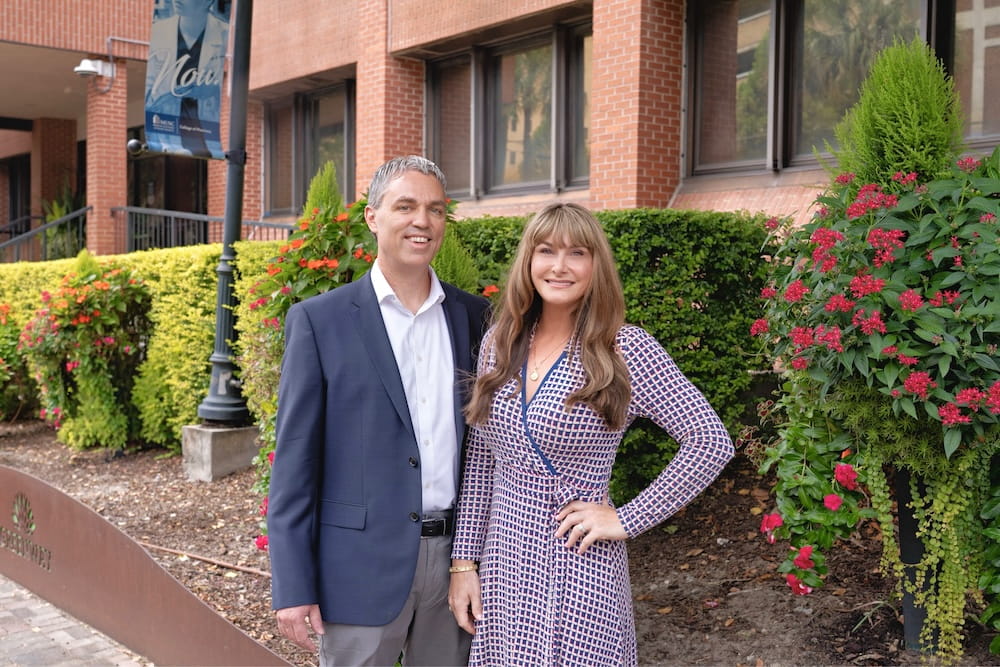
The Medical University of South Carolina (MUSC) has been awarded over $11 million by the National Institute of General Medical Sciences to establish a Center of Biomedical Research Excellence (COBRE). This new initiative, known as the South Carolina Building Resilience through Innovative Interventions to promote Growth and Health after Trauma COBRE, or the BRIGHT Center, aims to enhance resilience in trauma survivors. The center will be led by Dr. Carla Kmett Danielson, a clinical psychologist and the first woman to direct a COBRE at MUSC, marking a significant milestone for the Department of Psychiatry and Behavioral Sciences.
The establishment of the BRIGHT Center comes at a critical time. Approximately 75% of Americans experience a potentially traumatic event by age 18, with trauma-related health conditions costing the nation over $300 billion annually. While many individuals exhibit resilience, millions suffer long-term mental and physical consequences. Dr. Danielson highlights the challenges faced by healthcare systems in delivering scalable, evidence-based treatments where they are most needed.
Addressing a National Health Crisis
The National Alliance on Mental Illness reports that 1 in 5 Americans experience mental illness each year, yet over half do not receive treatment due to cost or accessibility issues. In South Carolina alone, more than 700,000 adults were diagnosed with a mental health condition in 2021, and over 2.3 million residents live in areas lacking sufficient mental health professionals. The BRIGHT Center aims to change these statistics by equipping a new generation of trauma researchers with cutting-edge resources and tools.
“The wonderful news is that many people show tremendous resilience after experiencing trauma, and there are things we can do to help strengthen that resilience,” said Dr. Danielson. “The BRIGHT Center will build on that strength, instill hope in affected communities, and help people to envision a brighter future than they may have thought possible.”
Empowering Early-Career Researchers
The BRIGHT Center’s primary goal is to support early-career investigators with mentoring and resources necessary for conducting high-impact trauma research. This support will enable researchers to develop and test innovative treatment strategies, improving access and care quality for those affected by trauma. By advancing their projects, these researchers can secure new grant funding and establish themselves as independent scientists.
“The BRIGHT Center is meant to serve as a one-stop shop to bring together resources that support people in the early stages of their career in learning how to have the most impact in the field of trauma,” explained Dr. Danielson. The center will provide these resources through three research cores: the Digital Health Core, the Community Engagement Core, and the Dissemination and Implementation Science Core.
Innovative Research Cores
The Digital Health Core, led by Dr. Kenneth Ruggiero, will equip researchers with the latest technology, including mobile applications and artificial intelligence, to enhance the efficiency and accessibility of interventions. The Community Engagement Core, led by Dr. Marvella Ford and colleagues, will help researchers tailor their studies to community needs, ensuring interventions resonate with their intended audiences.
Finally, the Dissemination and Implementation Science Core, led by Dr. Rochelle Hanson and others, will focus on improving the uptake of interventions by making them more accessible and relevant across various clinical settings. “Just because you build it doesn’t mean they’ll come,” noted Dr. Danielson, emphasizing the importance of ensuring interventions reach those who need them most.
Trailblazing Research Projects
The first cohort of early-career researchers includes Dr. Christine Hahn, Dr. Hannah Espeleta, and Dr. Guillermo Wippold. Dr. Hahn will test a smartphone application designed to support traumatic stress and substance misuse treatment in sexual assault centers. Dr. Espeleta aims to expand access to home visiting models that deter child maltreatment by developing a hybrid in-person/virtual format. Dr. Wippold will digitize a program addressing health-related quality of life, incorporating strategies to combat traumatic stress.
Dr. Danielson is optimistic about the BRIGHT Center’s potential to transform trauma care. “In clinical psychology, one of the first principles you learn is ‘process over content’ as a treatment approach,” she stated. “The processes and best practices learned through the COBRE cores can be applied across all future research.”
Looking ahead, Dr. Danielson envisions the BRIGHT Center as a catalyst for transformative change, closing treatment gaps through innovative interventions and revolutionizing their implementation. “If I could wave a magic wand and look five years into the future, I’d envision the BRIGHT Center as a catalyst for transformative change,” she said, hoping to see a significant reduction in barriers to care for trauma survivors.







